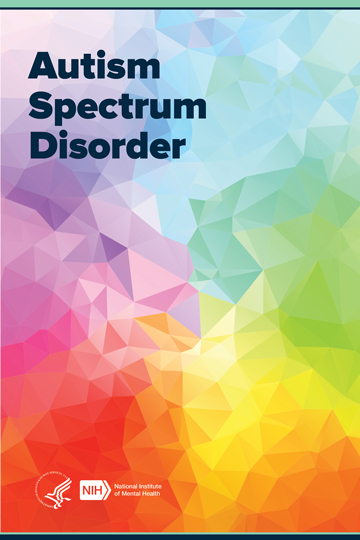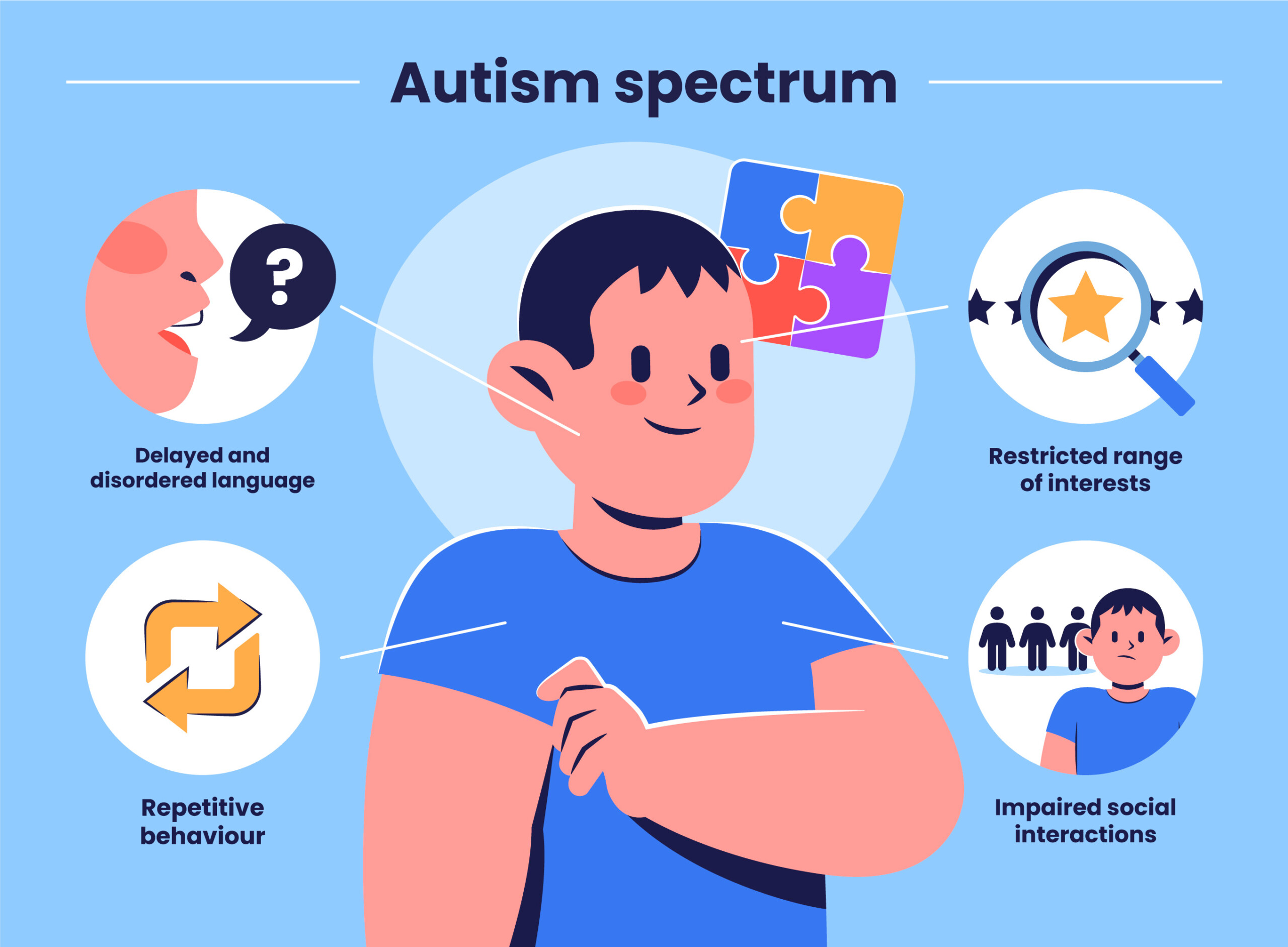Top qualities of an effective Autism Behavioral Therapy
Top qualities of an effective Autism Behavioral Therapy
Blog Article
Comprehending the Effect of Behavioral Autism on Day-to-day Live and Social Communications
You could not understand just how deeply behavior autism impacts day-to-day life and social interactions. People on the range typically navigate a world loaded with communication hurdles and sensory overload. These obstacles can bring about frustration and seclusion, influencing their connections and overall well-being. Recognizing these subtleties is important for fostering encouraging atmospheres. What methods can we carry out to produce more inclusive areas and meaningful links? The responses could surprise you.
Defining Behavior Autism and Its Characteristics
Behavior autism, frequently described as autism spectrum condition (ASD), encompasses a variety of problems characterized by difficulties in social communication, communication, and repeated behaviors. You may see that individuals with ASD often have a hard time to analyze social cues, which can cause misunderstandings in discussions. They may locate it tough to establish eye call or participate in little talk, making social scenarios really feel frustrating.
Communication problems can show up in numerous ways, from delayed speech advancement to a choice for making use of less words. Repetitive habits, such as hand-flapping or shaking, can work as coping mechanisms to handle stress and anxiety or sensory overload. These attributes can greatly influence every day life, making it essential for you to understand and sustain those with ASD. By acknowledging these traits, you can foster a setting that promotes approval and encourages effective communication, assisting people with autism prosper in their everyday communications.
The Range of Autism: Comprehending Irregularity in Behavior
Autism spectrum problem (ASD) isn't a one-size-fits-all medical diagnosis; it varies extensively among people. You might come across individuals that are extremely spoken and involve quickly in conversations, while others may choose singular tasks or interact non-verbally.
Furthermore, the way individuals with ASD react to sensory input can differ substantially; some could be overwhelmed by intense lights or loud noises, whereas others prosper in boosting environments. The spectrum also consists of differences in social communications; some people may battle to interpret social hints, while others navigate social settings with loved one ease. Recognizing this irregularity is necessary, as it helps you appreciate everyone's one-of-a-kind experience and tailor assistance to their specific requirements, cultivating a more comprehensive environment for everybody.
Interaction Challenges Encountered by Individuals With Autism
When you connect with individuals on the autism range, you may see their one-of-a-kind communication difficulties. They usually deal with troubles with both spoken and nonverbal hints, which can impact their social communications. Understanding these barriers is crucial for fostering much better connections and support.

Verbal Interaction Difficulties
Many people on the autism range experience spoken interaction troubles that can significantly affect their everyday communications. Your tone, volume, or speed might not line up with social assumptions, triggering others to misinterpret your objectives. Identifying these difficulties can help you and your assistance network create techniques to boost interaction and cultivate better links with others in your daily life.
Nonverbal Interaction Barriers
Verbal interaction isn't the only difficulty individuals on the autism spectrum face; nonverbal communication obstacles can be just as substantial. You may find it hard to translate body movement, faces, and eye get in touch with, which are necessary for effective interaction. These difficulties can lead to misunderstandings or misinterpretations of social signs, making communications really feel frustrating or confusing. You might struggle to reveal your very own emotions with nonverbal methods, leaving others uncertain of your objectives or feelings. This separate can develop sensations of isolation and aggravation. Acknowledging these obstacles is essential for promoting understanding and compassion in your interactions. By attending to nonverbal interaction, you can find methods to improve your social experiences and boost your overall top quality of life.
Social Communication Influences
Social interactions can commonly really feel frustrating due to the special interaction challenges faced by people with autism. You could battle with interpreting social hints, making it difficult to comprehend mockery or body language. This can cause misconceptions or uncomfortable moments in conversations. Additionally, initiating and keeping discussions might really feel difficult, triggering stress and anxiety in social circumstances. You might like organized environments, making spontaneous communications awkward. It's additionally typical to experience difficulty in engaging in tiny talk, which can impede forming new relationships. Identifying these difficulties can help you locate methods to enhance communication, such as exercising social skills in secure setups or using aesthetic help - Aba Therapist Near Me. Comprehending your needs permits you to navigate social interactions with greater confidence and convenience.
Social Interaction and Partnership Building in Autism
While structure relationships can be testing for individuals with autism, recognizing their one-of-a-kind point of views and communication styles directory can foster meaningful connections. You could discover that lots of individuals on the spectrum like direct communication and might struggle with social hints or small talk. By being straightforward in your communications, you can aid produce a setting where they feel comfy.
Take the time to pay attention and observe just how they express themselves. This understanding can guide you in steering conversations better. Involving in shared interests can also function as a bridge to deeper connections. Whether it's a pastime, a favored program, or a common interest, these usual threads can open doors to friendship.
Every Day Life Regimen: Browsing Methods and challenges
Maneuvering life regimens can be particularly challenging for people with autism, especially when unanticipated adjustments happen. You may discover comfort in having a structured schedule, as it aids you expect what's next. It's normal to feel anxious or overloaded when disturbances occur. To navigate these challenges, think about implementing aesthetic schedules or checklists. These devices can give clearness and confidence.
Developing a regimen that consists of sensory breaks can also be beneficial. This assists create an understanding setting.
Finally, practice mindfulness strategies to handle tension and anxiety. Straightforward breathing exercises or basing methods can make a significant difference. By including these strategies, you can improve your daily routine and lessen disruptions, making life feel a lot more workable.
Toughness and Abilities of Individuals on the Autism Range
Comprehending day-to-day life regimens is simply one element of the autism experience. Lots of people on the autism range have amazing toughness and abilities that set them apart.
Moreover, your memory skills typically beam, specifically in areas of passion. Autism Behavioral Therapy. This propensity for keeping details can make you a valuable source in areas like art, modern technology, or scientific research. You may likewise exhibit strong visual reasoning, enabling you to picture intricate ideas and fix issues creatively
Additionally, your unique point of view on the world can foster empathy and understanding in others, enhancing social interactions. Welcoming these toughness not just boosts your self-confidence however likewise helps others appreciate the diverse skills you give the table.
Producing Inclusive Environments for Individuals With Autism
Creating comprehensive settings for people with autism starts with creating sensory-friendly spaces that satisfy their unique needs. You can likewise foster possibilities for social interaction, assisting to build friendships and links. By making these adjustments, you'll add to a more inviting atmosphere for everybody.
Creating Sensory-Friendly Spaces
While developing sensory-friendly spaces, it's vital to mirror on the special requirements of individuals with autism. Integrate quiet zones where individuals can pull back and charge when bewildered. Consist of aesthetic routines or clear signage to help people browse the room confidently.
Advertising Social Interaction Opportunities
Designing sensory-friendly rooms not just addresses specific comfort yet also establishes the phase for purposeful social communications amongst people with autism. Urge peer mentoring, matching people with autism with encouraging peers who can lead them with social scenarios. By applying these techniques, you can improve social possibilities, assisting individuals with autism develop relationships and strengthen their social abilities in a secure, welcoming setting.

Frequently Asked Concerns
Exactly How Can Buddies Assistance A Person With Behavioral Autism?
You can sustain a close friend with behavioral autism by holding your horses, listening actively, and appreciating their limits. Involve in activities they take pleasure in, connect freely, and develop a comfy setting where they feel valued and understood.
What Resources Are Available for Parents of Children With Autism?
You can check out various sources for moms and dads of kids with autism, including support system, educational websites, and neighborhood neighborhood services. Attaching with various other parents can additionally supply important understandings and shared experiences to assist navigate obstacles.
Can Behavioral Autism Change Gradually?

Yes, behavioral autism can transform with time. You could notice shifts in communication, social skills, and actions as your child grows. Early treatment and assistance commonly play vital functions in these developing changes.
Exactly How Do Sensory Level Of Sensitivities Affect Daily Life?
Sensory sensitivities can make daily experiences frustrating. You might battle with bright lights or loud sounds, leading to anxiety or evasion. Finding environments that fit your needs can substantially improve your comfort and general day-to-day life.
What Are Usual Misconceptions About Behavioral Autism?
You might think behavioral autism only impacts interaction abilities, yet it's even more facility. Many assume individuals lack empathy or intelligence, which isn't true. Understanding these misunderstandings assists foster approval and assistance for those on the spectrum.
Behavioral autism, commonly referred to as autism range condition (ASD), incorporates a variety of problems defined by difficulties in social interaction, communication, and repeated behaviors.Social interactions can frequently feel overwhelming due to the unique interaction obstacles like it encountered by people with autism.Designing sensory-friendly spaces not only addresses private comfort but also establishes the phase for purposeful social communications among people with see it here autism. Encourage peer mentoring, pairing people with autism with encouraging peers that can assist them through social situations. By implementing these techniques, you can enhance social possibilities, aiding individuals with autism develop relationships and enhance their social skills in a risk-free, inviting setting.
Report this page